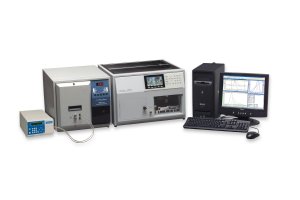A team of researchers led by Professor Timothy McKenna, Canada Research Chair in polymer reaction engineering at Queen's University in Kingston, Ontario, is using the Viscotek TDAmax gel permeation chromatography (GPC) system from Malvern Panalytical to optimize polymerisation conditions for the production of specifically tailored materials, including those with applications in the paints and adhesives industries.

The Viscotek TDAmax GPC system delivers absolute molecular weight and molecular weight distributions, both of which are crucial polymeric parameters that dictate performance. One of the team's primary goals is to control free radical polymerisation reactions to achieve the desired characteristics in acrylate, methacrylate and styrenic-based polymers.
“For us GPC is an essential tool,” said Professor McKenna. “The Viscotek range provides a reliable solution and Malvern Panalytical offers excellent and local customer support. In previous research, I routinely used a Malvern Panalytical Zetasizer to study particle size and zeta potential. The instrument worked extremely well and any questions requiring Malvern Panalytical's help were always dealt with swiftly and efficiently.”
The Viscotek range of GPC systems is one of the most recent additions to the Malvern Panalytical portfolio of analytical tools for polymer characterization. Complementing Malvern Panalytical's renowned Zetasizer series, which uses light scattering techniques to measure zeta potential and particle size, and the company's capillary and rotational rheometers for melt characterization, the TDAmax is a fully integrated triple detector GPC system. It incorporates refractive index and light scattering detectors and a viscometer, and provides direct absolute molecular weight measurement and precise intrinsic viscosity data, enabling comprehensive investigation of polymer properties, including structure.
Malvern Panalytical, Malvern Panalytical and Zetasizer are registered trademarks of Malvern Panalytical